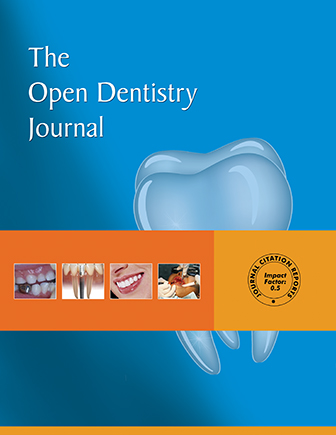All published articles of this journal are available on ScienceDirect.
Cyclic Fatigue of Different Nickel-Titanium Rotary Instruments: A Comparative Study
Abstract
Since the introduction of nickel-titanium alloy to endodontics, there have been many changes in instrument design, but no significant improvements in the raw material properties, or enhancements in the manufacturing process. Recently, a new method to produce nickel-titanium rotary (NTR) instruments has been developed, in an attempt to obtain instruments that are more flexible and resistant to fatigue. NTR instruments produced using the process of twisting (TF, SybronEndo, Orange, CA) were compared to NTR instruments from different manufacturers produced by a traditional grinding process. The aim of the study was to investigate whether cyclic fatigue resistance is increased for TF NTR files. Tests were performed with a cyclic fatigue device that evaluated cycles to failure of rotary instruments inside curved artificial canals. Results indicated that size 06-25 TF instruments showed a significant increase (P< .05). In the mean number of cycles to failurewhen compared to the other tested 06-25 NTR. Hence, it can be concluded that size 06-25 TF NTR instruments were found to be significantly more resistant to fatigue than those produced with the traditional grinding process.


